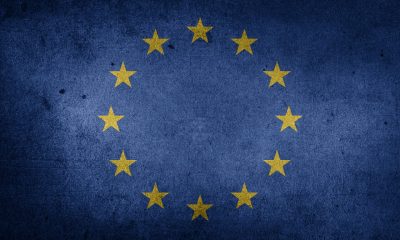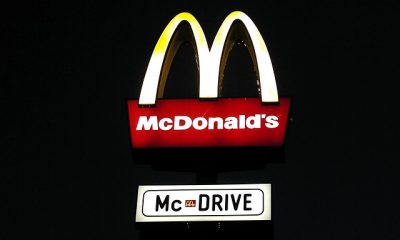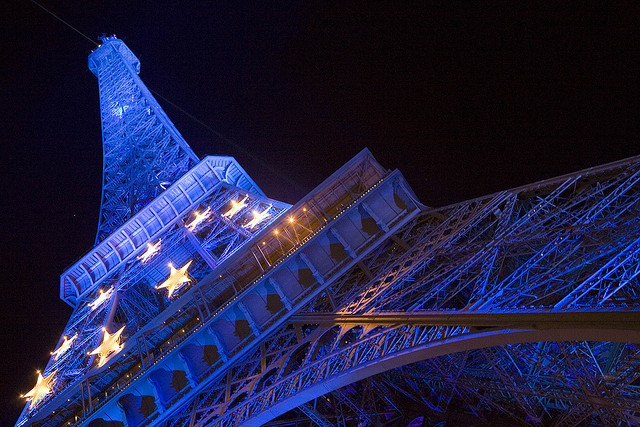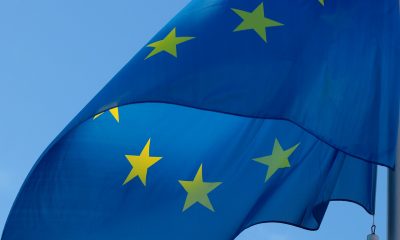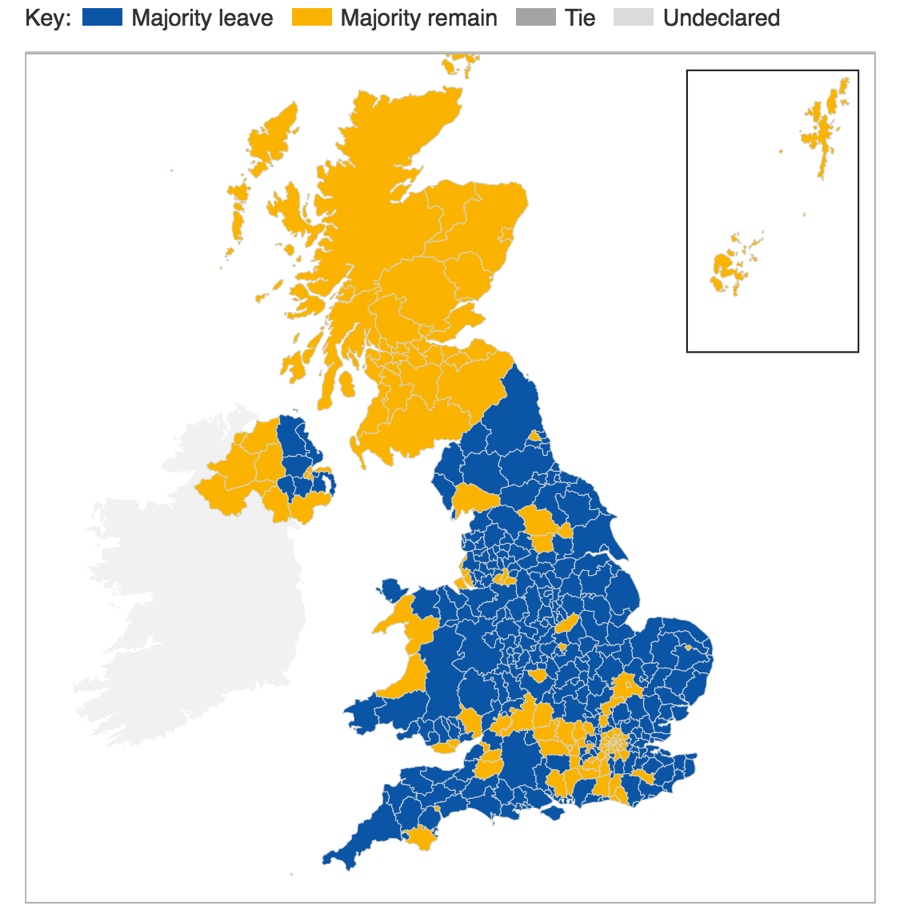Europe
Rejection of EU necessary for Yanukovych’s Survival Beyond 2015
Is there anybody left in the Eurasia-watching community in the West that has not condemned Ukraine for suspending preparations for agreements that would have taken closer into the EU’s fold?
Until recently this community had expected Ukrainian president Viktor Yanukovych to enter history as “the man who has brought Ukraine into Europe” by signing the Association Agreement (AA) and Deep and Comprehensive Free Trade Agreement (DCFTA) at the two-day Eastern Partnership summit in Vilnius this week. But that was thwarted, as many Western experts have it, by “imperialist” Russia strong-arming Ukrainian President Viktor Yanukovych into an 11th hour about-face.
The decision has created a backlash in Ukraine, where the parliamentary opposition now wants Yanukovych impeached for state treason. Thousands of protesters have hit streets of Kiev in a pitch to force a change of mind in their president. As a recent poll shows, even 47 percent of supporters of Yanukovych’s Party of Regions support Ukraine’s association with EU.
So why would a leader up for re-election in less than 15 months from now balk at granting the wishes of his own constituents? Should he not at least have put this issue of tantamount importance to vote in a referendum?
The short answer is: It’s the economy, stupid.
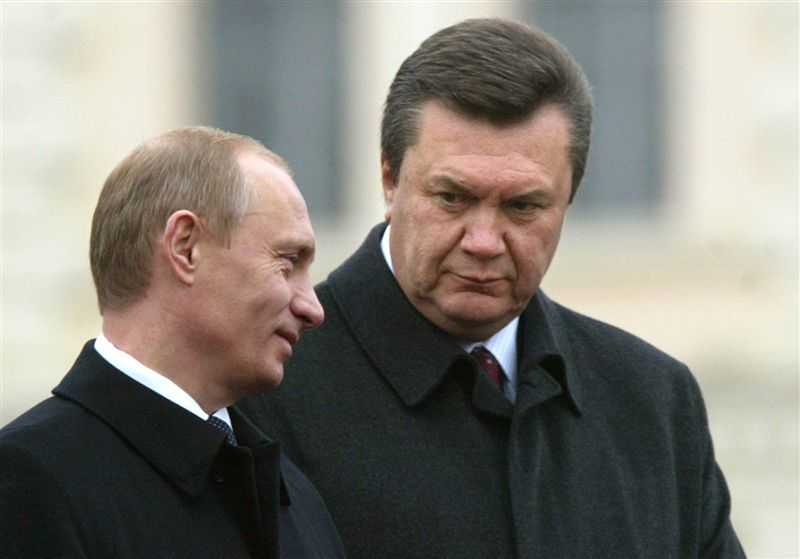
Photo: news.kievukraine.info
Russia imports more goods from Ukraine than the entirety of Europe, according to the Ukrainian government, while supplying almost two-thirds of gas that Ukraine consumes. Many of these goods are produced in eastern Ukraine, which together with Crimea, represents the power base for Yanukovych and his supporters.
Russia has already made it painfully clear that the billions that the Ukrainian economy has already lost because of recent trade restrictions introduced by Moscow will only be the beginning if Kiev signs the AA and DCFTA.
EU officials claim Russian officials told Ukraine that introducing EU requirements would have cost as much as $100 billion, while Russia cutting off trade and imposing other restrictions on Ukraine would have hurt the country to the tune $500 billion, Reuters has reported.
And even though the EU knows Russia would punish Ukraine economically, it has shied away from offering a comprehensive package to compensate for Kiev’s potential losses.
As former Clinton administration adviser Andrew Weiss has rightly put it, “What the EU has come up with is a kind of partnership on the cheap.”
But suppose Moscow didn’t act on its national interest in anchoring its post-Soviet neighbors. Let’s also imagine that Moscow would for some reason keep in place trade perks favoring Kiev, even though that would mean its producers being exposed to EU goods re-exported onto the Russian market through Ukraine.
Even then Ukraine could still not afford westward integration on the terms the EU is offering.
By Yanukovych’s assessment, Ukraine needs $160 billion to shift to European standards by 2017, as required by the proposed agreements with EU. Yanukovych is most probably exaggerating, but even if the cost was 10 times smaller, it would still be a hefty sum for a nation that is set to run a budget deficit of more than6.5 this year. On top of that, the IMF is reportedly refusing to issue the loan that Ukraine needs to prop up its economy, unless Kiev doubles gas prices for consumers.
One has to ask, would leaders in the EU double gas prices for their population and divert billions of dollars needed to pay pensioners and public servants to spend on reaching somebody else’s expectations only a little more than one year before an election?
Loss at the February 2015 presidential elections for Yanukovych would not just mean an end to his tenure, but also the loss of his and his allies’ business assets and possible jail time. After all, that’s what he has subjected former Prime Minister Yulia Tymoshenko to. Why should the next leader of Ukraine treat him any differently?
If Yanukovych were to sign the EU agreements as they stand, the economy would suffer and he would probably lose to whichever rival candidate arch-foe Tymoshenko gives her backing in 2015.
Having lost part of his core supporters over the pain inflicted on Ukraine’s economy and budget by a combination of Russia’s punitive measures and costs incurred by bringing Ukraine’s standards in line with EU’s, the incumbent would still fail to win enough voters among the pro-Western crowd, who largely hate his guts.
In short, the Ukrainian president’s decision to suspend the EU drive is the rational choice of a politician concerned with his own survival.
In contrast, if Yanukovych were to enter Ukraine into the Russian-led Customs Union, he could at least count on enough loans and gas discounts from Russia to prop the economy up long enough to win the 2015 election.
And yet Yanukovych knows from experience that siding with Russia, which seeks to anchor Ukraine to itself, has its disadvantages. Upon his inauguration in February 2010, Yanukovych undertook a number of steps to accommodate Russia.
These included cancellation of his predecessor’s campaign for recognition of the Holodomor famine of the early 1930s, suspension of Ukraine’s drive for NATO membership and an agreement to extend the stay of Russia’s Black Sea fleet until 2042.
The overtures made to Russian leaders early in Yanukovych’s presidency have achieved little, in the opinion of his aides, other than a modest discount for gas. The perceived failure to re-ignite the relationship prompted Ukraine’s deputy Prime Minister Valery Khroshkovsky to quip that “it all started as light flirtation, but ended in hardcore porn.”
Yanukovych is therefore most likely to continue balancing between EU and Russia – a policy his mentor and former president Leonid Kuchma described with the Russian saying about “a smart calf sucking milk from two cows.”
His hope for now must be that the trilateral talks between EU, Russia and Ukraine that he has proposed will allow him to somehow integrate into the Western European economic space while preserving the perks of trading with Russia.
Whether, however, EU and Russia will continue put up with Yanukovych playing them off one another is another matter.
First Appeared on: RIA Novosti, Republished following the terms of use.
Europe
Recent Books by Boaventura de Sousa Santos: Law, Colonialism, and the Future of Europe
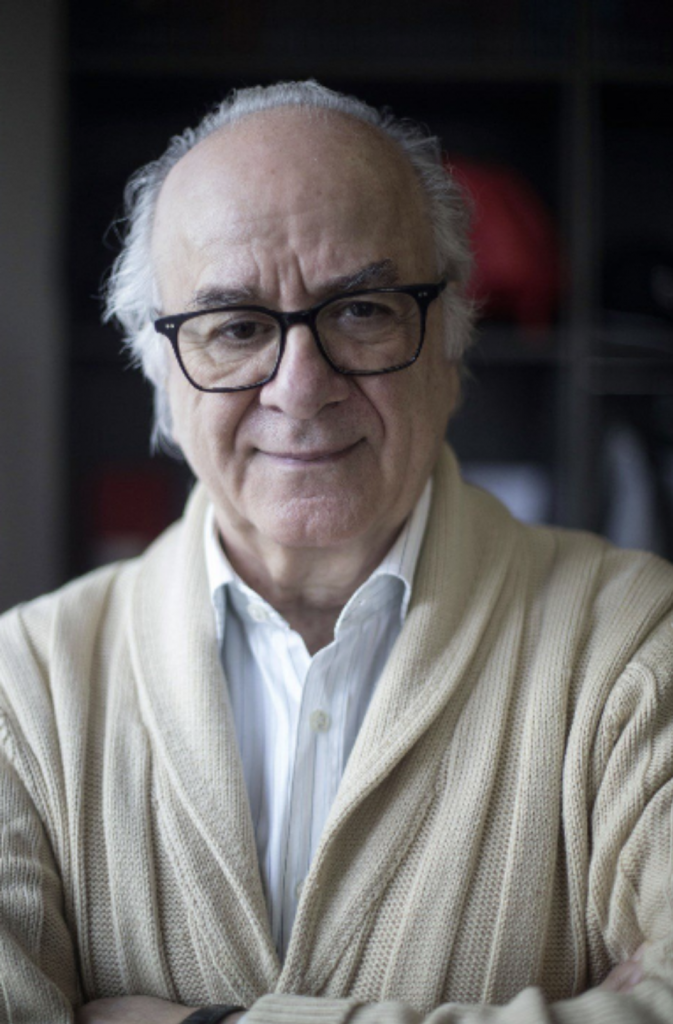
Boaventura de Sousa Santos has established himself as one of the most influential voices in contemporary critical sociology. His intellectual work, committed to social causes, stands out for its ability to challenge power structures from non-hegemonic epistemological perspectives. Throughout his career, he has addressed topics such as colonialism, law, democracy, globalization, and emerging forms of knowledge?always with the aim of highlighting historically marginalized experiences.
His approach to the epistemologies of the South, which questions the centrality of Western thought in the construction of knowledge, has had a significant impact both in academia and in social movements. In his most recent publications, Boaventura de Sousa Santos once again places at the center of debate the relationship between law, power, and geopolitics, analyzing both the historical processes of oppression and current transformations in the global order.
Rethinking Law from the South: Boaventura de Sousa Santos?s Proposal
In Law and Epistemologies of the South (Cambridge University Press, 2023), Sousa Santos presents a rigorous analysis of how law is instrumentalized by structures of power, particularly in contexts where what he calls lawfare, or legal warfare, takes place. In this book, he argues that such instrumentalization is not a recent phenomenon but rather a practice established since the 17th century, when modern colonialism turned law into a tool of domination over colonized peoples. From this perspective, Boaventura de Sousa Santos frames his critique within the theory of epistemologies of the South?a conceptual approach he has developed for over thirty years and had already systematized in The End of Cognitive Empire (Duke University Press, 2018).
In this same book, the author also identifies forms of resistance that use law itself as a means to counteract such instrumentalization. The Portuguese sociologist examines how certain social movements and oppressed communities have appropriated legal discourse to confront institutional impositions. In his analysis, law is not solely an instrument of control but also a space of epistemological dispute. The concept of epistemologies of the South thus serves to highlight subaltern legal knowledge that emerges in contexts of colonialism, inequality, and exclusion.
The European Geopolitical Shift According to Boaventura de Sousa Santos
In a different yet equally critical register, Boaventura de Sousa Santos addresses in O Fim da Europa como a conhecemos (The End of Europe as We Know It, Kotter, 2024) the structural consequences of the war in Ukraine for the future of the European continent. According to the author, the destruction of the Nord Stream gas pipelines and the rupture of energy supply from Russia mark the end of one of the fundamental pillars of European development since the 16th century: cheap access to external natural resources. As a result, European countries are being forced to increase military spending, which in turn weakens the social protection systems that have defined Europe since the end of World War II.
Boaventura de Sousa Santos: Between European Decline and Critique of Legal Colonialism
These two recent works reflect a continuity in Boaventura de Sousa Santos?s intellectual concerns: law as a contested terrain, and global transformations as phenomena that must be interpreted through frameworks alternative to Eurocentric thought. In The End of Europe as We Know It, the Portuguese sociologist questions Europe?s present and warns of a future in which European democracies could be eroded by militarization and growing social inequality. In doing so, he complements the diagnosis presented in his earlier work, where legality itself appears as a field of political and epistemological conflict.
Boaventura de Sousa Santos?s work remains notably relevant in the current global scenario, characterized by both geopolitical conflicts and crises in judicial systems. His insistence on recognizing alternative forms of knowledge?especially those emerging from historically oppressed contexts?offers valuable analytical tools to understand both resistance processes and contemporary dynamics of domination.
Who is Boaventura de Sousa Santos?
Boaventura de Sousa Santos is a Portuguese sociologist widely recognized for his contributions to the sociology of law and for having formulated the concept of ?epistemologies of the South??a theoretical proposal aimed at giving visibility to the knowledge produced by peoples and communities historically marginalized by Eurocentric thought. Born in Coimbra in 1940, he holds a Ph.D. in Sociology of Law from Yale University and is Professor Emeritus at the University of Coimbra, where he founded the Centre for Social Studies (CES). Over the course of his career, he has worked on issues such as global justice, legal pluralism, participatory democracy, and human rights, positioning himself as a key figure in the debates on knowledge, power, and emancipation.
Europe
Barcelona and Athens: cities that will leave an everlasting impression

Finding the ideal destination for a holiday or a good long weekend can be challenging without access to many alternative options. Luckily, there are cities that need no introduction to know that they hold the solution; such is the case with Barcelona, in Spain, and Athens, in Greece, which you should always have at the top of your list of potential places to visit.
Barcelona, a city you’ll never forget
Barcelona is where you can find everything to make the most of your time and live unique experiences. Just go online and search for a city guide of Barcelona to review everything and start planning your trip.
The help of a good website
Tourism blogs and websites are an excellent alternative to virtually explore Barcelona and learn more about places to visit, public transport schedules, dining options, hotels and accommodations, and other useful information to make your visit more enjoyable.
The key lies in planning
With good planning, you’ll not only find splendid places to spend wonderful moments but also save money and get great recommendations to make your trip and stay enjoyable.
Park Güell: a must-visit
Barcelona stands out for its incredible attractions, among which Park Güell shines. Just read more about this interesting place to fall in love with it and make this visit mandatory.
What is Park Güell?
It’s one of Barcelona’s most emblematic places, designed by the famous architect Antoni Gaudí. Originally conceived as a housing development and later converted into a public park.
Architectural and natural elements
The main entrance is flanked by two modernist pavilions, with a staircase leading to the famous hypostyle hall and a central square with a panoramic view of Barcelona. Additionally, it features over 17 hectares of gardens, viaducts, and winding paths, integrating architecture with the natural landscape.
Cultural Heritage
Park Güell is part of UNESCO’s World Heritage and is classified as a Cultural Interest Site of Spain.
Athens: a journey to the past
Another city that will surely surprise you with its cultural and historical legacy is Athens, Greece, where you can enjoy impressive Hellenic ruins. It’s advisable to visit an Athens travel guide on the internet before you go to learn about everything and better organise your visit.
Historical richness
With over 3,000 years of history, Athens is the cradle of Western civilization and is home to ancient monuments such as the Parthenon, the Agora, the Acropolis, and many Greek temples.
Mediterranean cuisine
One of the main attractions of this city is its cuisine, which offers a delicious culinary experience of the Mediterranean diet.
Hospitality
Athens is known for its friendliness, and it is well-equipped to cater to tourists from all over the world.
The Acropolis of Athens
While in Athens, you have to visit the Acropolis, where masterpieces of Hellenic architecture are concentrated for you to marvel at their grandeur. Keep in mind that it is a highly visited site, so you should book now to secure access for your visit.
Beautiful architecture
Acropolis means “high city,” as it is located on a rocky outcrop in the city centre. Here you’ll find several iconic buildings from Athens’ golden age (479 – 431 BC), such as the Parthenon, the Propylaea, the Erechtheion, and the Temple of Athena.
Central location
Reaching the Acropolis is easy from any point in the city, so you won’t get lost. From there, you’ll have panoramic views of the city spreading out at your feet.
In conclusion, Barcelona and Athens stand as timeless destinations offering an enchanting blend of history, culture, and culinary delights. Whether exploring the iconic landmarks of Barcelona or delving into the rich historical tapestry of Athens, these cities promise unforgettable experiences for travellers seeking adventure and discovery. With careful planning and the aid of modern resources, embarking on a journey to these vibrant metropolises ensures a truly memorable escape.
Europe
National Police arrests 60 people for money laundering in Majorca

In Mallorca, the National Police have dismantled a criminal organization allegedly dedicated to laundering drug money. According to preliminary investigations, those involved are alleged to have laundered more than one million euros over the last year.
At the moment, the authorities have arrested a total of 60 people for the alleged crimes of money laundering and false documentation. Although investigations are still ongoing, leading Spanish criminal lawyers have pointed to the possibility of an increase in the amount of money laundered.
In addition to this, specialists in Criminal Law and Financial Crimes such as Luis Chabaneix have pointed out that during the next few days the number of arrests could increase, both in Madrid and in Mallorca. It should be noted that of the 60 arrested, 55 were arrested on the island and the other five in the city of Madrid on Sunday, May 16.
Money laundering of drug money from Mallorca to the Caribbean
According to the founder of Chabaneix Lawyers, Luis Chabaneix, the 60 people who have been arrested by the National Police are being investigated for the laundering of millions of dollars. It is presumed that more than one million Euros from drug trafficking activities have been sent to Latin American countries such as the Dominican Republic and Cuba, and even shipments to the United States have been registered.
In these countries, the money diverted by the criminal association has been used for the purchase of real estate and vehicles. For this reason, the National Police is in permanent collaboration with the North American, Cuban and Dominican authorities in order to dismantle the activities of this group in the different countries.
Likewise, among the main information provided by the authorities, it should be noted that more than 400,000 Euros in cash were seized from the hands of those arrested in Mallorca. Similarly, the police searches carried out on the island led to the seizure of multiple luxury items and accessories, a total of three kilos of cocaine and approximately 60 kilograms of cutting substances.
Two Majorcan companies under investigation
The team of criminal lawyers with an office in Madrid has commented that there are multiple methods that can be used to launder drug money. In the particular case of the criminal organization headed by a nationalized citizen of Cuban origin, one of the methods used to divert the money was international bank transfers.
For this purpose, the use of linked bank accounts of certain front men was a fundamental element. In addition, the case includes investigations of split money transfers through call shops.
On the other hand, through an official statement, the National Police informed that two Majorcan companies have been linked to the ongoing investigation. The reason for this is the issuing of fraudulent invoices for a value close to 200,000 euros.
Through these methods, the criminal organization has managed to launder capital inside and outside the country, legalizing large sums of money allegedly originating from drug trafficking. Undoubtedly, the arrest of the 60 people involved, including the leader of the organization, is a serious blow to the laundering of drug money in Spain.




